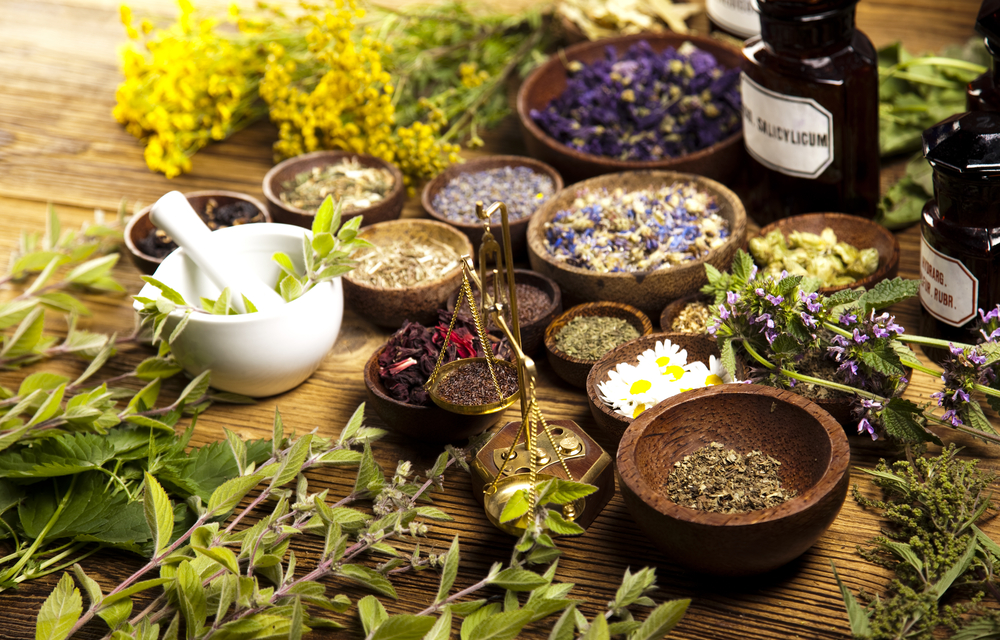Arthritis is a general term that refers to various diseases that affect the joints. Arthritis always causes joint pain, but not all joint pain is caused by arthritis. Most joint and arthritic pain is caused by inflammation. Joint and arthritis pain is still treated with non-steroidal anti-inflammatory drugs (NSAID). These drugs cause bad side effects such as gastroenteritis and kidney failure. For this reason, for the past 20 years, scientists have been studying herbs to see if they were better alternatives for treating chronic joint diseases. Before aspirin was invented, people have been relying on herbal remedies for centuries to treat pain. The chemical compounds in herbs that mitigate chronic pain are proved to be astonishingly efficient. Here are the top 5 herbs to help ease your pain:

1. Green Tea
Green tea is efficient in preventing cardiovascular disease and cancer, but recently scientists have recognized its effects on arthritis pain as well. Green tea is a rich source of polyphenol compounds called catechins. Epigallocatechin-3 gallate (EGCG), found in green tea, is the most powerful of these catechins. EGCG shows both anti-inflammatory effects and protection from cartilage degradation by inhibiting the release of enzymes called aggrecanases. Since joint pain causes are inflammation and cartilage degradation, the anti-inflammatory effects of green tea mitigate joint pain by reducing inflammatory responses. The recommended dose of green tea is 3 – 4 cups a day, drinking more might cause stomach irritation because of its strong caffeine content.
2. Turmeric
Turmeric has been used in Southeast Asia for almost 4000 years now. It serves culinary, religious and medical purposes. It was traditionally used to relieve stomach problems, different pains, and also for relieving arthritis. Modern studies have noted that turmeric can prevent cancer, cardiovascular disease, and arthritis. The main anti-inflammatory compound in turmeric is curcumin which gives it its bright yellow hue. The extensive research on turmeric and its main compound curcumin have revealed its anti-inflammatory effects. A dosage of 8 – 60 grams of fresh turmeric root three times daily is recommended.
3. Boswellia (Frankincense)
The two most common types of arthritis are rheumatoid arthritis and osteoarthritis. Although both have completely different origins, Frankincense can aid in the treatment of due to its wide-ranging effects. The Boswellia trees located in India, Somalia, and the Arabian Peninsula produce a gum resin known as Frankincense. Frankincense is said to mitigate all issues related to arthritis as it has anti-inflammatory, analgesic and anti-arthritic properties. It works by inhibiting the number of white blood cells in joint fluid and inhibiting leukocyte elastase released in rheumatoid arthritis. If taken in combination with turmeric, it is said to show better efficiency in treating osteoarthritis than certain pharmaceutical drugs. It is usually taken as an extract.
4. Burdock Root
The Physical Medicine and Rehabilitation Department of the Tabriz University of Medical Sciences Hospitals conducted a study on thirty-six patients suffering from osteoarthritis by giving one group Burdock root tea and the other group a placebo. The group given burdock root tea showed improvement in their condition in contrast to the placebo group. The anti-inflammatory properties of burdock root are a result of its high concentration of powerful antioxidants, namely, phenolic acids, quercetin, and luteolin. Other than as a tea, you can find burdock root as a tincture, extract or powder.
5. Japanese Knotweed
The Japanese knotweed is an excellent source of resveratrol, a polyphenol that protects plants from radiation and parasites. When consumed by mammals, this polyphenol is shown to have anti-inflammatory and anti-oxidant effects; it also protects the DNA from damage. The Japanese knotweed was mostly studied for its neuroprotective and cardioprotective effects, but recently studies found it was also beneficial for joint health. This plant is available as a dietary supplement as capsules or tincture. The recommended daily dose is 50 – 500 mg daily.
Conclusion:
Arthritis and joint pain are conditions that are, even today, challenging to treat. Relying on pain killers is not a good option for sufferers as these have bad side-effects. Herbs have been used for centuries to treat pain, long before aspirin was invented. Besides, most drugs available today have their origins in natural products (approximately 61%). Switching to herbal alternatives for treating your joint pain will give you the benefit of pain relievers without the side effects.
Video- Foods That Fight Arthritis Pain I Wish I Knew Earlier
Author Bio
Kathy Mitchell was born and raised in the USA. She has done MA in English literature. She loves to publish her article on different health websites. In her spare time, she likes to do research on health information. She is an inspirational writer who firmly believe in the power of self-motivation. Also, she is contributing to Consumer Health Digest since 2011. Recently she had the opportunity to review max synapse. Connect with her on Google+, Facebook and Twitter.




